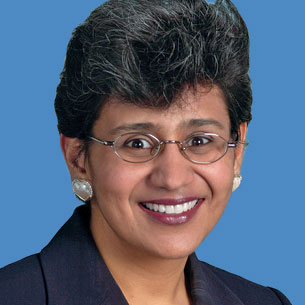I told the story of a very elderly patient of mine, who had gone for a routine screening mammogram, which found a speck of calcifications which were further evaluated with magnification views and a biopsy before she was referred to me with low-grade DCIS for surgical considerations. We had a very frank discussion – although she was certainly healthy for her very advanced age, with hypertension as her only comorbidity, one had to wonder about the natural history of her disease and whether this would ever progress to invasive disease that would threaten her quality or quantity of life. As she contemplated whether or not to pursue surgical extirpation of her disease given our conversation, I considered why she had a screening mammogram at her age, with little to no evidence of the efficacy of mammography in this population. A recent New England Journal article noted significant overdiagnosis, and the paper published in JAMA Internal Medicine estimated annual screening-related expenditures associated with mammography in the population over the age of 75 to be $410.6M.
But it’s not just the fact that our duty as citizens should force us to be good stewards of health care resources. It’s our duty as physicians to avoid needless tests that could add to potential morbidity. Beyond that, one cannot underestimate the effect of the financial impact of cancer treatment on the quality of life of our patients. Bankruptcy levels continue to rise in this nation, and the #1 cause (accounting for 42% of all bankruptcies) is medical expenses -- that’s more than job loss, credit card debt, avoiding foreclosure, preventing loss of utilities, student loans, and car payments combined.
We need to stop the madness –- stop ordering metastatic work-ups on patients with early-stage breast cancer; stop doing routine MRIs even on patients planning to have bilateral mastectomies; stop doing a CBC and complete metabolic profile on every patient who walks into your office “just because”….we need to practice more rational evidence-based medicine; and our professional organizations like ASCO need to support these choices with guidelines like its “Top Five.” Soon after I gave the talk, a few people showed me the Time magazine article that came out the same day (how serendipitous was that?!). The same song, with a different verse... We can no longer choose to ignore the issue, for if we don't step up to stop the madness, others will stop it for us.


Comments
Don S. Dizon, MD, FACP
Mar, 05 2013 1:57 PM
Great post, Anees! I often wonder what thought process we go through as clinicians when we go ahead and order that mammogram, colonoscopy, or otherwise in our octogenarian patients. Do we think through, "what if I find something" or even, "If I do find something, how likely is it that my treatments will pose a greater risk than the disease itself". There is so much talk concentrated on screening in young women, and yet nothing about how to approach the screening in geriatric patients. Of course, as you point out, it is only one of many issues. Perhaps oncologists need to engage our brethren more actively in surgery, primary care, and gynecology to address this issue. It's as if we are all part of an orchestra, but our sheet music is very different. Agreed- we must stop the madness. DSD